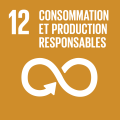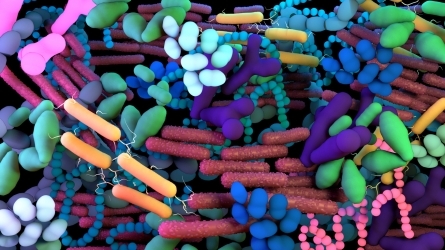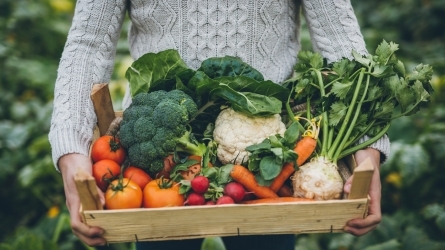
Bertako produktuen ezagutza eta kontsumoa
Kontsumitzaileek tokiko produktuarekiko dituzten ohiturak eta motibazioak.
Description
Uda Ikastaro honetan hainbat ikerketaren emaitzak azalduko dira: alde batetik, bertako mahai sagarra izango da hizpide; bestetik, Z belaunaldi gazteen kontsumo ohituren inguruko ikerketa ezagutuko da; eta azkenik, Millennial belaunaldiak tokiko merkatuekiko duen sentsibilitateari buruzkoa.
Hitzaldi hauetan azaldutakoa hausnarketarako gai izango da ondoren egingo den mahai-inguruan, eta tokiko produktuen ezagutzatik kontsumora dagoen arrakala izango da aztergai, dinamika parte-hartzailearen bidez.
Objectives
Tokiko produktuen eta garaikoen inguruan nahikoa ezagutzarik badagoen hausnartzea: Zeintzuk diren badakigu? Bereizten al ditugu bertako produktuak?
Tokiko produktuak erosteko eta kontsumitzeko kontsumitzaileek dituzten motibazioak eta pertzepzioak ezagutzea.
Bertako produktuen kontsumoa handitzeko egin daitekeenaren inguruan hausnartzea.
Activity directed to
- All public
- University student
- Students not from university
- Teachers
- Professionals
- Tecnicos del sector
Program
12-09-2025
Erregistroa eta dokumentazio banaketa
Institutional Opening session. Speaking order:
- Xabier Arruti Olazabal | GFAko Lurralde Oreka Berdea - Diputatua
“ Sagarberritzen proiektuaren aurkezpena“
- Anais Iglesias Sanchez | Mondragon Unibertsitatea
“BZ generazio gazteen kontsumo ohiturak“
- Leire Vega | Prosumerlab
“ Millennial belaunaldiak tokiko merkatuekiko duen sentsibilitateari buruzko ikerketa“
- Leire Vega | Prosumerlab
Atsedena
Round table: Round table
- Garikoitz Aiesta Etxaniz | Landaola
- Xabier Iraola Iraola | ENBA
- Mikel Ayala | Harakai Urkaiko
- Anais Iglesias Sanchez | Mondragon Unibertsitatea
Directors

Yurre Peñagarikano Zubeldia
Urkome

Agurtzane Etxaniz Etxaniz
Asociación de Desarrollo Rural de Debabarrena
Speakers

Garikoitz Aiesta Etxaniz
Baserritarra eta teknikaria

Mikel Ayala

Anais Iglesias Sanchez

Xabier Iraola Iraola
ENBA Gipuzkoa

Leire Vega
Registration fees
| Face-to-face | Until 12-09-2025 |
|---|---|
| 0 EUR |
| Live online | Until 12-09-2025 |
|---|---|
| 0 EUR |
Venue
GOIZANE Zentroa, Zaldibia
Olaeta Auzoa, 6, 20247 Zaldibia, Gipuzkoa
Gipuzkoa
GOIZANE Zentroa, Zaldibia
Olaeta Auzoa, 6, 20247 Zaldibia, Gipuzkoa
Gipuzkoa
Sustainable development goals
Agenda 2030 is the new international development agenda approved in September 2015 by the United Nations. This agenda aims to be an instrument to favour sustainable human development all over the planet, and its main pillars are the eradication of poverty, a reduction in equality and vulnerability and fostering sustainability. It is a unique opportunity to transform the world up to 2030 and guarantee human rights for all.

3 - Good health and well-being
Guarantee a healthy life and foster the well-being of all people of all ages. Key issues: universal healthcare coverage, sexual and reproductive health, reduction in the number of road accident casualties, pollution and chemical products, reduction in maternal and neonatal mortality, the end of epidemics such as AIDS, combating hepatitis and other water-borne diseases, drug and alcohol prevention, control of tobacco.
More information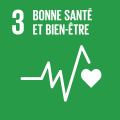
8 - Decent work and economic growth
Foster sustained, inclusive and sustainable economic growth, full and productive employment and decent work for everyone. Key issues: decent work, full and productive employment, entrepreneurship, fostering micro-companies and SMEs, employment rights, safe working environments, youth employment, equal opportunities and pay, strengthening of financial institutions, and breaking the link between economic growth and the degradation of the environment.
More information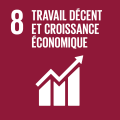
12 - Responsible consumption and production
Guarantee sustainable modalities of consumption and production. Key issues: sustainable management and efficient use of natural resources, reduction of chemical particles released to the atmosphere, water and soils, reduction of waste products, recycling, reuse and reduction, sustainable practices, sustainable public procurement, sustainable lifestyles, rationalisation of inefficient subsidies for fossil fuels.
More information